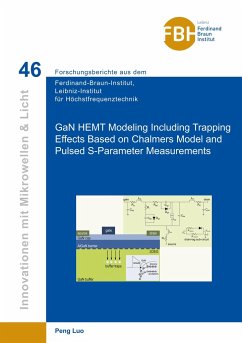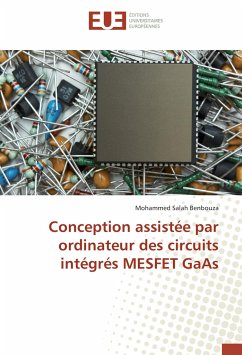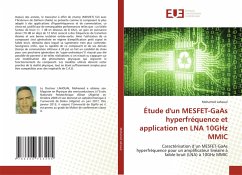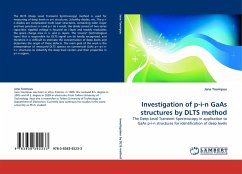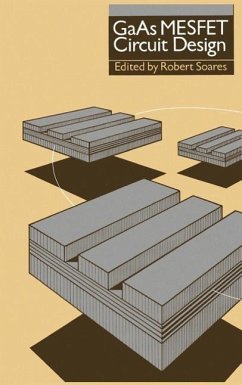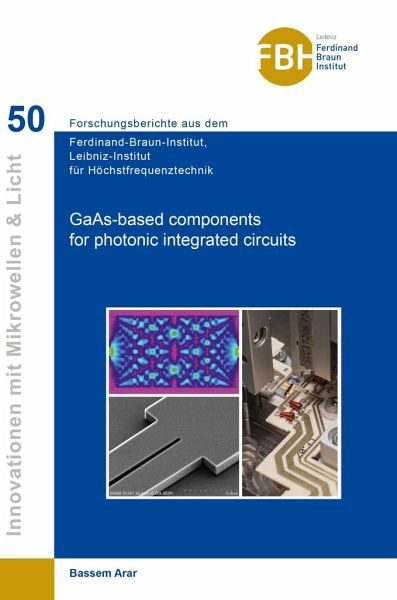
GaAs-based components for photonic integrated circuits

PAYBACK Punkte
0 °P sammeln!
Successful miniaturization of complex electro-optic devices is a prerequisite for bringing quantum optical sensors to work outside optical labs in a real-world application scenario. Monolithic, i.e. chip-scale integration, holds the promise of achieving the highest level of compactness, robustness, and reliability at the lowest production cost possible. This work focuses on modelling, simulation, design, manufacturing, and testing of functional building blocks for photonic integrated circuits. GaAs-based waveguides, NxM multi-mode interference couplers, and electro-optic phase modulators were ...
Successful miniaturization of complex electro-optic devices is a prerequisite for bringing quantum optical sensors to work outside optical labs in a real-world application scenario. Monolithic, i.e. chip-scale integration, holds the promise of achieving the highest level of compactness, robustness, and reliability at the lowest production cost possible. This work focuses on modelling, simulation, design, manufacturing, and testing of functional building blocks for photonic integrated circuits. GaAs-based waveguides, NxM multi-mode interference couplers, and electro-optic phase modulators were developed for applications of rubidium precision spectroscopy at 780 nm for the first time. As an example for photonic integrated circuits a monolithic amplitude modulator based on a Mach-Zehnder-interferometer was demonstrated. Further, GaAs-based phase modulators were developed for applications at 1064 nm. For operation at 780 nm single-mode waveguides with an exceptionally small loss of 1.2 dB/cm and phase modulators with an efficiency as large as 16 deg/(Vxmm) were demonstrated. This work additionally advances the experimental methods available to investigate the electro-optic properties of phase modulators: a novel method based on the I&Q-demodulation of time domain modulation signals derived with a heterodyne interferometer does not only provide access to the phase but also to the (residual) amplitude modulation and allows to separate linear from quadratic phase modulation effects. This provides novel experimental insights into the physical effects governing phase modulation. In fact, it is shown that the current understanding according to which carrier-density related effects contribute solely to the linearly of phase modulation is questionable.




